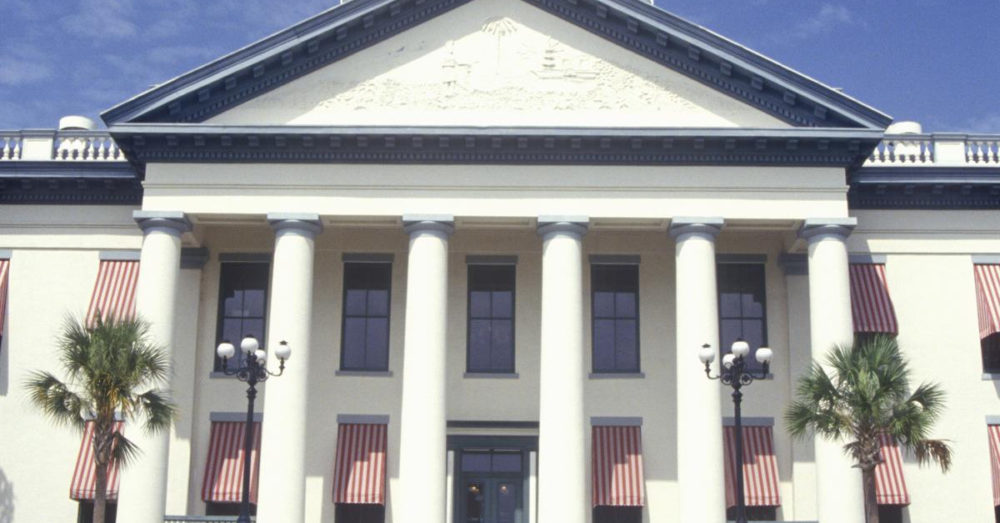
(Weekly political notes from The News Service of Florida)
By JIM TURNER AND BRANDON LARRABEE
THE NEWS SERVICE OF FLORIDA
Labeling the use of business recruitment incentives as “socialism,” incoming House Speaker Richard Corcoran told a Texas audience this week he doesn’t expect Florida lawmakers to give such money to Gov. Rick Scott — or to Scott’s successor.
“When you’re taking money out of the masses’ pockets and then giving it literally — to the Democrats’ argument — to the top 1 percent, to the detriment of everybody else, that is de facto socialism,” Corcoran said during a panel discussion in Austin hosted by the Texas Public Policy Foundation, a non-profit conservative think tank.
Corcoran led off the discussion, which was labeled “Economic Development: A Debate on Corporate Welfare.”
“How we can be for that, under some pie-in-the-sky rhetoric that it’s going to bring jobs and that it will diversify our economy?” Corcoran said, “When in reality we’ve been doing this under Republican leadership — Republican governors, Republican House, Republican Senate — we’ve been doing it for two decades, and it’s been an abject failure by any measure.”
Corcoran, who will formally become speaker after the Nov. 8 elections, also predicted requests for incentive money will have a difficult time with future legislators. He noted that Miami Lakes Republican Jose Oliva, who is in line to become speaker in 2018, is also a “philosophically sound believer in the free market.”
“I don’t think that (incentive) fund will exist for at least another four to six years given the Republican leadership in the House,” Corcoran said.
Asked about Corcoran’s comments, Scott’s office defended the use of incentives.
“Governor Scott is committed to fighting for every resource available to bring jobs to Florida,” Scott spokeswoman Jeri Bustamante said Thursday in a statement. “We have won 500 competitive projects in less than 5 years and will continue to ensure that economic incentives are only given to companies if promised jobs are created. We want more jobs and businesses in Florida, and we will make sure that we have every available tool to remain competitive.”
Corcoran, R-Land O’ Lakes, led a House effort early this year to defeat Scott’s request for $250 million in incentive money for the public-private Enterprise Florida. Scott recently said he would request $85 million for recruitment efforts in 2017.
Lawmakers in 2015 gave $53 million to Enterprise Florida — $43 million for incentives, $10 million for marketing — after Scott asked for $85 million.
Incoming Senate Appropriations Chairman Jack Latvala, R-Clearwater, has said he will work for Scott’s new incentive-spending proposal if the money is available.
Corcoran said “there will be a fight.”
Other panelists during Wednesday’s event in Austin defended the Lone Star State’s use of business incentives, primarily to keep neighboring states from attracting companies that could otherwise be lured to Texas.
“Sometimes our philosophy and the real world kind of collide together,” said Texas Sen. Craig Estes, who chairs the state Senate’s Natural Resources and Economic Development Committee.
But Corcoran held fast, noting the Florida House’s opposition to the state helping to pay for construction and upgrades at professional sports facilities.
“The biggest boondoggle to the whole world,” Corcoran said of stadium funding.
Corcoran also recalled efforts by Scott this year to sway the future House leaders — Corcoran and Oliva — to support the $250 million in recruitment incentives, first with a dinner at the governor’s mansion and later with a call to the governor’s office.
Two weeks before the end of the legislative session, Corcoran said Scott point-blank stated he knew that Corcoran and Oliva “were killing this thing.”
“I remember sitting there thinking, well how do you answer this,” Corcoran said. “And while I’m trying to come up with a diplomatic answer, Jose, who’s from Miami-Dade, he goes, ‘Oh yeah, it’s us.’ ”
LATIN BUILDERS BACK HILLARY
Endorsements from business and other special-interest organizations are not usually that notable in general elections. Those with a liberal bent tend to go with Democratic candidates, and those that lean conservative — particularly on the business side — back Republicans.
But the candidacy of GOP presidential nominee Donald Trump has broken many of the political rules this year, and business endorsements might be following suit. The Latin Builders Association announced this week that it was supporting former Secretary of State Hillary Clinton, Trump’s Democratic opponent.
Alex Lastra, president of the Doral-based group, told members in a statement that the group’s pro-business, limited-government principles usually made it a better fit with Republican candidates.
“However, we also consider it of the outmost important that the president of the United States possess the right temperament, sound judgment, knowledge on national and international issues and the ability to bring people together, regardless of party affiliation,” Lastra wrote. “It is clear that, in this election, the candidate whose values best align with the LBA (Latin Builders Association) and who possesses these important qualities is Hillary Clinton.”
Trump was not mentioned in the group’s statement.
TWEET OF THE WEEK: “Inquiries from voters asking if they can ‘undervote’ the Presidential contest & still vote in other contests. Answer is yes! @votepasco”—Pasco County Supervisor of Elections Brian Corley (@brianecorley), on Tuesday, in an apparent nod to the historic unpopularity of Clinton and Trump.



